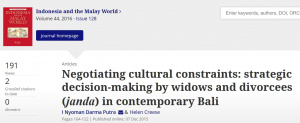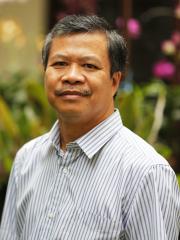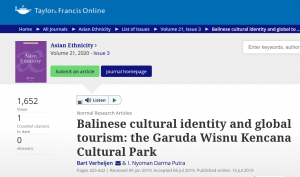
This article discusses the strategies deployed by widows and divorcees (janda) in negotiating cultural constraints and social stigmatisation in contemporary Bali. In Balinese patriarchal society, women are disadvantaged in terms of their access to employment and commonly earn less than men. When a marriage ends, Balinese widows and divorcees not only lose their partners but also an important source of family income. Janda may need to take on additional burdens in supporting themselves and their families and are therefore economically vulnerable. In addition, janda are often considered to be sexually available, may be the target of men’s sexual advances and thus become a frequent source of gossip. The dual state-village administrative system further complicates divorce and remarriage within Balinese patriarchal society. In order to understand how Balinese janda cope with these social and cultural constraints, this article focuses on the contrasting life histories of three janda. Deploying Pierre Bourdieu’s concepts of economic, cultural, social and symbolic capital, the analysis demonstrates that access to multiple forms of capital plays an important role in enabling Balinese janda to make their lives bearable and manageable. With adequate access to economic resources, janda can not only demonstrate their independence and ability to support their children, but also are able to meet their social and religious obligations. In this way they can maintain their respectability and social acceptance within their local communities. These findings contribute to a wider and more complex picture of the life of Balinese janda.









Enable comment auto-refresher